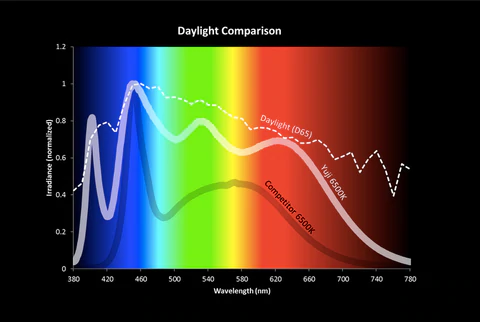Lighting is one’s work environment that has a large impact on productivity. Although it may not be obvious at first glance, the type and strength of the lighting in a workplace greatly affects the physiological aspect of employees and thus overall productivity. There is a strong relationship between daylight exposure in the workplace and employees’ sleep, activity, and quality of life.
For many people, windows are the most important determinant of the occupants’ level of satisfaction with a building according to a study conducted in Britain and published in “The Responsible Workplace” (Jensen, 2015). In other words, natural light is very important not only to how well one can see, but also to one’s mood, behavior, and hormonal balance. Natural light can increase workers’ happiness, less absenteeism, fewer illnesses from satisfaction, and increase productivity among workers.
One of the most severe effects poor lighting has on the human body is disrupting our circadian rhythm. The light turns internal clocks “on” and “off,” which control sleep-wake cycles, hormone release, etc, and disruptions to these can lead to sleep disorders that ultimately disrupt productivity (Bergland, 2013). Because humans spend 80-90% of their lives indoors, we need to find a way to increase sunlight exposure while maintaining work hours (Court, 2010).
How can we increase natural light in the workplace? Companies can renovate their buildings to optimize the most natural light through windows. However, this task could seem very daunting, especially the cost. One solution is to switch the lights to those that are close to natural sunlight – LEDs with high CRI. Lighting products like those of Yuji LED can provide lighting with CRI reaching 98 – almost close to natural sunlight! A study conducted by Northwestern University found that workers in offices with windows received 173 percent more white light exposure and slept 46 minutes more per night compared to those who work in windowless offices (Bergland, 2013). Office workers without windows reported lower quality of life including sleep quality, sleep efficiency, sleep disturbances, and daytime dysfunction. In this way, imitating white light exposure using high CRI LEDs can have a significant impact on improving quality of life and sleep, and ultimately productivity in the workplace.

